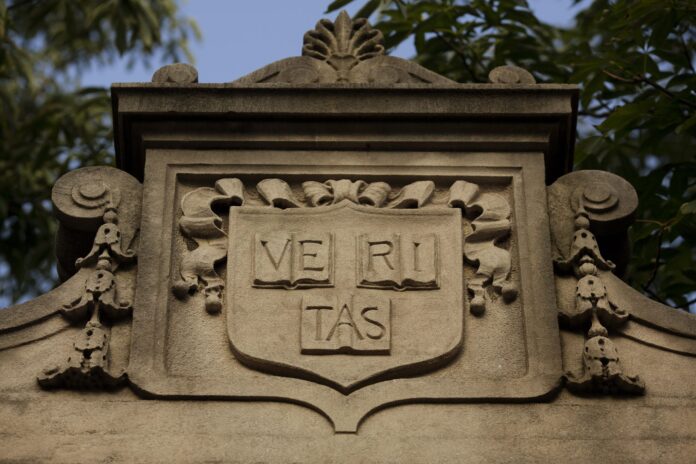
NEW YORK – The chairman of Harvard University’s chemistry department and a leading scientist in the study of nanotechnology was arrested for lying to United States investigators about his role in recruiting people to pass along scientific research to the Chinese government.
Charles Lieber, 60, was paid $50,000 a month and received more than $1.5 million to establish a lab and do research at Wuhan University of Technology, federal prosecutors in Boston said Tuesday. Two Chinese nationals were also charged: a Boston University researcher who prosecutors say was a lieutenant for the People’s Liberation Army, and a cancer researcher who allegedly tried to smuggle 21 vials of biological materials in his sock.
“This is not an accident or a coincidence,” U.S. Attorney Andrew E. Lelling said at a press conference in Boston. “This is a small sample of China’s ongoing campaign to siphon off American know-how and technology for China’s gain.”
Agencies across the federal government have mobilized against potential Chinese industrial spies, warning companies and universities and anyone else with intellectual property to be particularly vigilant when dealing with Chinese business partners and employees. Today’s action comes weeks after the Trump administration signed a Phase One trade deal with the Chinese.
“China is engaged in a massive, long-term campaign to steal U.S. technology for its own uses,” Lelling said, adding that the FBI has China-related investigations in all 50 states.
Prosecutors said Lieber lied to U.S. Defense Department investigators about his involvement with Wuhan University and the Thousand Talents Plan, a Chinese government program to recruit overseas researchers. His deceit caused Harvard to make false statements to the National Institutes of Health about his work with China, because grants that Harvard received required disclosure of ties with foreign governments, the U.S. said.
Lieber, whose Harvard biography page lists him as an honorary fellow of the Chinese Chemical Society, was arrested Tuesday morning at his office and was scheduled to appear at 2:30 p.m. before a federal magistrate.
“The charges brought by the U.S. government against Professor Lieber are extremely serious,” Harvard said in a statement. “Harvard is cooperating with federal authorities, including the National Institutes of Health, and is initiating its own review of the alleged misconduct. Professor Lieber has been placed on indefinite administrative leave.”
According to prosecutors, Lieber hid from both the U.S. government and Harvard his work for the Chinese university dating to 2011. In a five-year contract with Wuhan, Lieber’s personal research company agreed to make “strategic” scientific proposals, supervise young teachers, conduct nationally “important” projects and take other steps to benefit the school.
Prosecutors say that in addition to the $50,000 a month Lieber was paid by the Chinese university, he got as much as 1 million Chinese yuan a month for living expenses, which was about worth about $158,000 at the time.
The charges come amid intense scrutiny U.S. law enforcement officials are applying to ethnic Chinese scientists and, now, U.S. researchers.
Recruiting researchers
China has tried to lure overseas scientists for years. Government initiatives, such as the Thousand Talents and Changjiang Scholar programs, offer funding to experts to work at least part time in China. A 2018 report by the U.S. National Intelligence Council called such efforts a thinly veiled way “to facilitate the legal and illicit transfer of U.S. technology, intellectual property and knowhow” to China.
Last year, a University of Kansas researcher, Franklin (Feng) Tao was charged with hiding that he was working full-time for a Chinese university at the same time he was doing U.S-funded industrial research. Tao has denied wrongdoing.
“China’s communist government’s goal simply put is to replace the United States as a superpower,” Joseph R. Bonavolonta, the FBI’s special agent in charge of the Boston Field Division. “China is also using what we call nontraditional collectors such as researchers, hackers and front companies.”
Lieber, a native of Philadelphia, attended Franklin and Marshall College in Lancaster, Pennsylvania, where he graduated with honors in chemistry, according to his Harvard biography. He completed doctoral studies at Stanford University and post-doctoral research at the California Institute of Technology before joining Columbia University as an assistant professor in 1987.
He moved to Harvard in 1991, where he serves as chair of the Department of Chemistry and Chemical Biology.
Honored professor
Lieber has won more than a dozen awards for his work, most recently in September from the Welch Foundation in Houston, which honored Lieber and another professor for their “important research contributions which have had a significant, positive impact on humankind.”
In 2015, Harvard administrators learned for the first time that Lieber was the director of the lab he’d set up at Wuhan, and complained to him about the venture using the university’s logo without permission, according to the complaint.
Two days after being interviewed by Defense Department investigators, Lieber emailed a colleague that he “will be careful about what I discuss with Harvard University, and none of this will be shared with government investigators at this time,” according to the complaint.
In charges described as related to the Lieber case, prosecutors also disclosed allegations against two Chinese nationals.
Yanqing Ye, 29, a chemistry student at Boston University, is accused of lying to investigators and concealing her position in China’s military. She is now back in China, the U.S. said. Cancer researcher Zaosong Zheng, 30, has been held since his December arrest at Boston Logan International Airport on charges of trying to smuggle 21 vials of biological research. Zheng was working as a researcher at Harvard-affiliated Beth Israel Deaconess Medical Center, the U.S. said.
Janelle Lawrence and Chris Dolmetsch are reporters for Bloomberg News.












